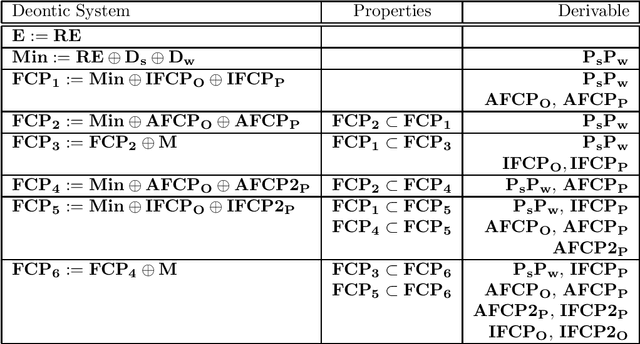Is Free Choice Permission Admissible in Classical Deontic Logic?
Paper and Code
May 19, 2019
In this paper, we explore how, and if, free choice permission (FCP) can be accepted when we consider deontic conflicts between certain types of permissions and obligations. As is well known, FCP can license, under some minimal conditions, the derivation of an indefinite number of permissions. We discuss this and other drawbacks and present six Hilbert-style classical deontic systems admitting a guarded version of FCP. The systems that we present are not too weak from the inferential viewpoint, as far as permission is concerned, and do not commit to weakening any specific logic for obligations.
 Add to Chrome
Add to Chrome Add to Firefox
Add to Firefox Add to Edge
Add to Edge